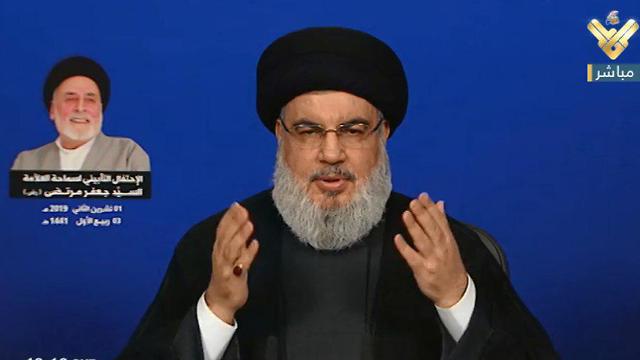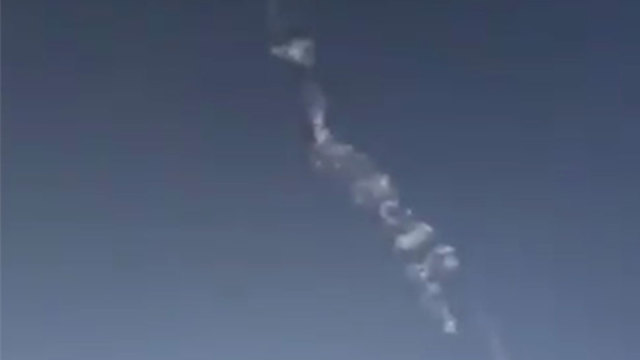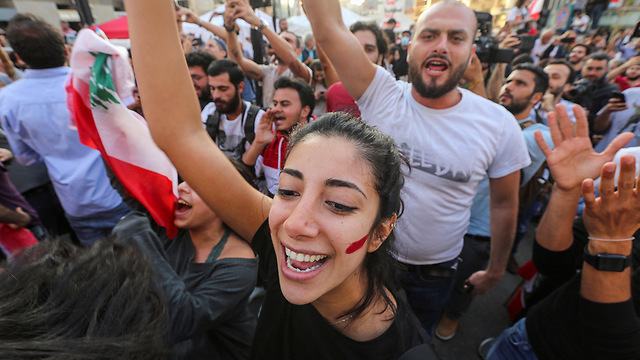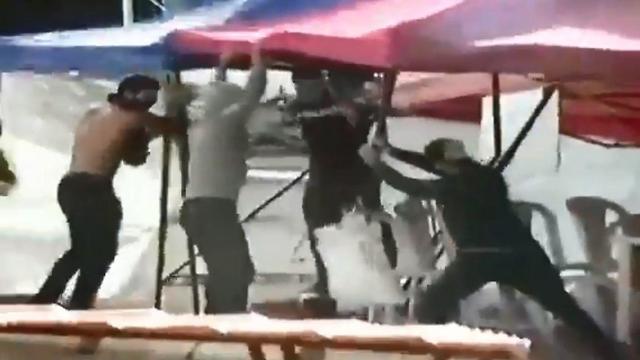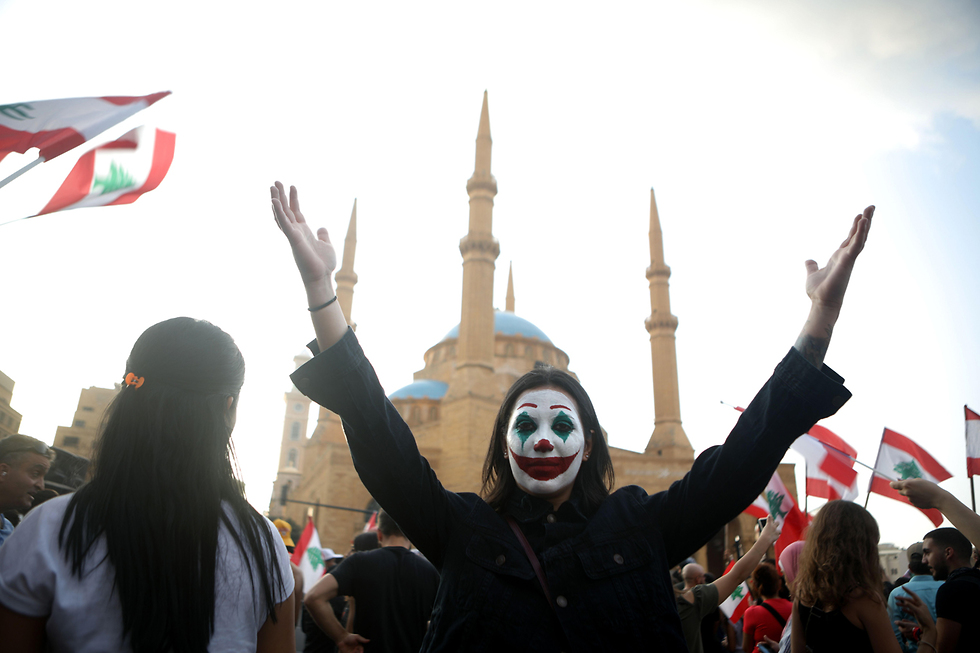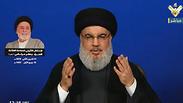

Nasrallah on bid to down IDF drone: We will purge Lebanon's skies of Israeli violations
Hezbollah leader says Lebanese economic protests will not deter action against Israel, day after anti-aircraft missile fired at IDF drone, says new government must listen to demands of people who took to streets, triggering Hariri resignation
Hezbollah Secretary-General Hassan Nasrallah vowed Friday to keep striking unauthorized aircraft over Lebanon, a day after an anti-aircraft missile failed to topple an IDF unmanned aerial vehicle in the south of the country.
"Bringing down UAVs is a natural matter," Nasrallah said in a televised speech from his hiding place in honor of a Shiite event in southern Lebanon.
"Our goal is to purge Lebanese skies of Israeli violations," he said.
"We will continue to act in this way regardless of internal developments in Lebanon," Nasrallah said, referring to the ongoing economic protests across the country.
"Israel is confident that we will not dare to use the weapons we used yesterday - but the resistance proves that it is daring."
Lebanon has long complained that Israeli military aircraft breach its airspace. In August, Hezbollah said two IDF drones came down in Beirut, one crashing into its communications hub in the Lebanese capital.
Touching on the protests that have so far led to the resignation of Prime Minister Saad Hariri, the Hezbollah leader said a new Lebanese government must listen to the demands that fuelled protests against the country's rulers.
Hariri's resignation has left Lebanon without a government as it faces the worst economic crisis since the 1975-90 civil war.
Hezbollah, a heavily armed terror group backed by Iran, had opposed the resignation of the coalition of which it was part.
"A new government must be formed as soon as possible ... and the new government must listen to the demands of the people who took to the streets," Nasrallah said.
"There must be serious work because time is tight and so is people's patience," he said, adding that the government's goal must be to restore confidence.
The unprecedented, nationwide protests that erupted on Oct. 17 tipped Lebanon into political turmoil at a time when it was already grappling with dire economic conditions and strains in its financial system.
Lebanese banks, which had been closed since Oct. 18, reopened on Friday, with queues building and customers encountering new curbs on transfers abroad and withdrawals from U.S. dollar accounts.
Though no formal controls were imposed, banks told customers they could only transfer funds abroad in particular circumstances such repaying loans, education, health, family support or commercial commitments.
An hour after doors opened, dozens people of people were waiting at some banks in Beirut and other cities, Reuters witnesses said. At others, fewer were waiting.
The central bank had promised not to impose capital controls when banks re-opened, measures that could hamper the currency inflows and investment that Lebanon badly needs.
Asked about steps being taken by banks, banking association chief Salim Sfeir said: "I would not call it restrictions but rather efforts by the banks to accommodate all customers, given the pressure resulting from closing for two weeks."














